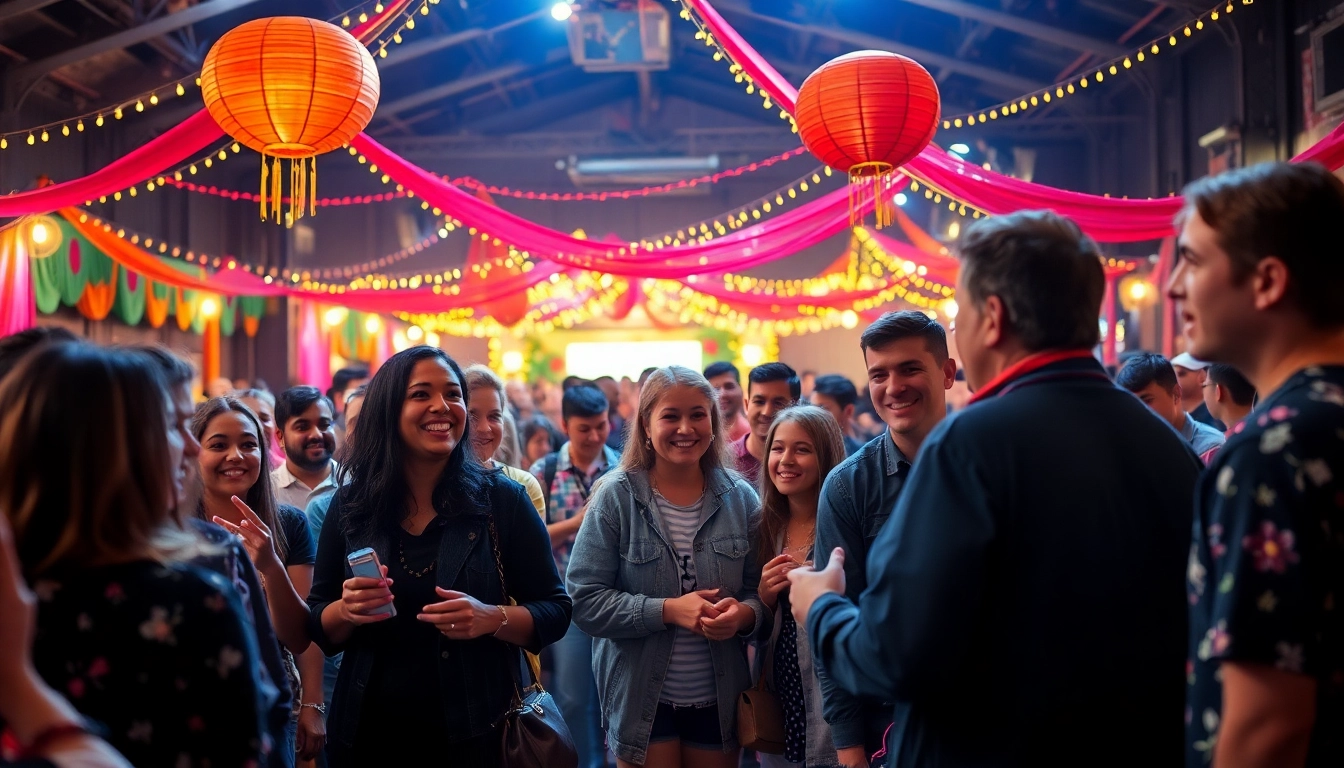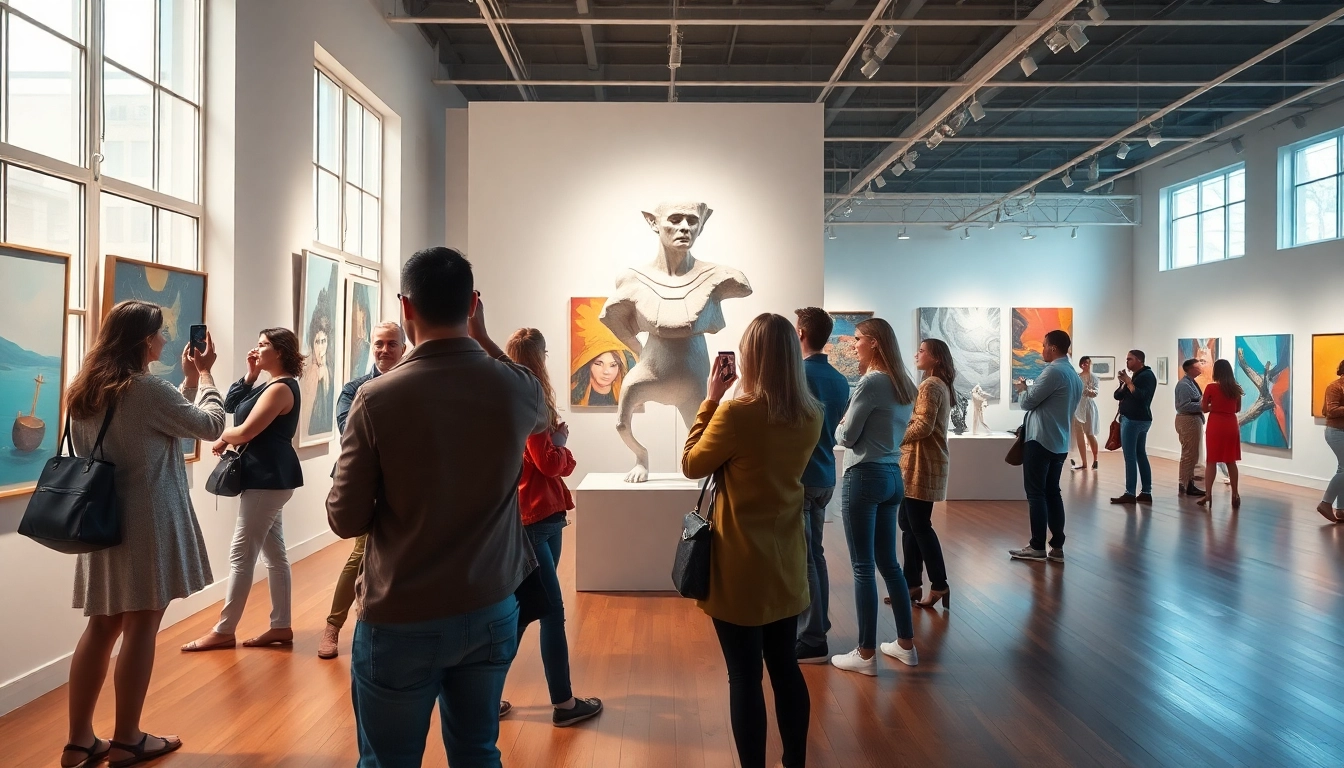Understanding Live Music Fans
In an age where digital music consumption often replaces live performances, the heartbeat of musical culture pulses strongest in the world of Live Music Fans. These enthusiasts are more than just casual listeners; they are die-hard supporters of the artists they adore, often traveling great distances to witness their heroes in an intimate, atmospheric setting. Understanding who these fans are and what drives them is crucial for anyone involved in the music industry, from artists and promoters to venue owners.
What Defines a Live Music Fan?
A live music fan is characterized by their passion for experiencing music in person, valuing the communal atmosphere of concerts, and engaging with artists beyond audio recordings. Unlike typical music listeners, live music fans prioritize the experience, ambiance, and energy that only a live performance can provide. They often seek out unique events, whether it’s a local band performing at a small bar or a major artist at a massive stadium, appreciating the emotional highs that a live show can evoke.
Demographics and Preferences of Live Music Fans
The demographic landscape of live music fans is diverse, spanning various age groups, socioeconomic backgrounds, and musical tastes. Recent studies reveal that a significant proportion of live music attendees are between the ages of 18 and 34, representing the millennial and Gen Z generations. This group tends to favor genres like pop, rock, indie, and electronic music, with an increasing interest in niche genres as well.
Fans’ preferences are influenced by trends in social media and streaming platforms, where exposure to new artists occurs at an unprecedented rate. Additionally, many fans appreciate immersive experiences, such as festivals that offer multi-genre performances combined with art installations, food vendors, and interactive elements. Understanding these demographic preferences enables artists and event organizers to tailor their offerings to meet and exceed audience expectations.
The Emotional Connection of Live Music Fans
The emotional connection that live music fans experience is central to their engagement. For many, attending a concert is not just about the music; it represents cultural identity, personal nostalgia, and social interactions. Fans often form bonds with others who share similar tastes, creating a communal experience where emotions run high—joy, nostalgia, excitement, even melancholy.
Such emotional experiences are enhanced by the atmosphere of live shows, where the energy from the crowd and the performance intertwine. The interaction between artists and fans—be it through energetic performances or personal anecdotes shared from the stage—solidifies this bond, creating lifelong memories and emotional investments in both the music and the artists.
Creating Memorable Concert Experiences for Live Music Fans
To capture the attention and loyalty of live music fans, it’s essential to curate concert experiences that resonate on multiple levels. This requires a comprehensive understanding of what attracts these fans and how to cater to their needs.
Key Elements that Attract Live Music Fans
Several key elements contribute to a memorable concert experience that attracts live music fans:
- High-Quality Sound and Visuals: Audiences expect nothing less than exceptional sound quality and visual effects, immersing them in the performance.
- Lineup and Scheduling: Strategically curated lineups featuring popular and emerging artists can draw larger crowds. The timing of the event, appropriate for target demographics, is equally important.
- Accessibility and Convenience: Ensuring easy access to venue facilities like transportation, parking, and amenities plays a vital role in fan turnout.
- Unique Experiences: Offering exclusive artist interactions—such as meet-and-greets or VIP packages—can heighten fans’ engagement.
- Merchandising Opportunities: Product offerings that allow fans to take a piece of their experience home can also enhance satisfaction.
Venue Considerations for Engaging Live Music Fans
The venue is a critical factor that can make or break the experience for concert-goers. Different venues offer unique atmospheres, and choosing the right one can significantly influence audience engagement and enjoyment. Here are some key considerations:
- Size and Capacity: Smaller venues can provide intimate experiences, while larger venues may offer a grander stage presence.
- Geographical Location: The venue location should be accessible to fans. Urban centers usually attract more attendees due to public transport availability.
- Acoustics and Layout: The design of the venue is crucial for ensuring optimal sound quality, allowing fans to enjoy the full effect of the performance.
- Amenities: Features such as food and drink vendors, restrooms, and seating arrangements contribute to the overall comfort and enjoyment of the audience experience.
How to Enhance Accessibility for Live Music Fans
Accessibility is a fundamental component that should not be overlooked. Making concerts accessible ensures that all fans can enjoy live performances, regardless of physical limitations. Some strategies to enhance accessibility include:
- Wheelchair Access: Ensure that venues are equipped with ramps, accessible seating, and facilities for fans with mobility challenges.
- Sign Language Interpreters: Offering interpreters for fans who are deaf or hard of hearing can broaden the audience and enhance their experience.
- Clear Communication: Providing detailed information about venue accessibility online and at the box office can help fans plan their visit better.
- Accommodations for Sensory-Friendly Experiences: Creating spaces for fans with sensory sensitivities during concerts—such as quiet areas or designated times—can also foster an inclusive environment.
Marketing Strategies for Reaching Live Music Fans
Effective marketing is essential for reaching live music fans. It’s crucial to align messaging and campaigns with their interests and behaviors to ensure maximum engagement.
Utilizing Social Media to Connect with Live Music Fans
Social media is a powerful tool for engaging with live music fans. Platforms like Instagram, TikTok, and Facebook allow artists and promoters to reach audiences directly. Best practices for using social media effectively include:
- Content Creation: Share behind-the-scenes footage, artist interviews, and live-stream snippets to build excitement leading up to events.
- Audience Interaction: Utilize polls, Q&A sessions, and contests to encourage fan participation and feedback.
- Hashtag Campaigns: Creating a unique, memorable hashtag for each event can help fans connect and share their experiences online.
- Targeted Ads: Employ targeted advertising to reach specific demographics, maximizing advertising budgets and campaign effectiveness.
Influencer Collaborations: Impact on Live Music Fans
Collaborating with influencers in the music niche can extend the reach and impact of marketing efforts. Influencers can promote events to their followers, fill in knowledge gaps about the artists, and provide social proof of the event’s value. Key strategies for effective influencer marketing include:
- Choosing the Right Influencers: Align with influencers whose brand values and audience demographics align with the concert’s target audience.
- Creative Campaigns: Encourage influencers to share personalized experiences that resonate more profoundly with their followers.
- Leveraging User-Generated Content: Encourage fans to share their experiences on social media, amplifying authenticity and reach.
Creating Targeted Campaigns for Live Music Fans
Targeted marketing campaigns can significantly enhance fan engagement. By analyzing fan demographics, behaviors, and preferences, marketers can design campaigns that speak directly to their interests. Some tactics include:
- Segmented Email Marketing: Send personalized communications based on past purchase behavior, genre preferences, and geographic data.
- Special Promotions: Offer limited-time tickets, discounts for early purchases, or exclusive access for loyal fans to drive urgency and excitement.
- Festival Packages: Curate experiences that bundle tickets, merchandise, and hotel accommodations to cater to dedicated fans.
Engagement Tactics to Retain Loyal Live Music Fans
Retaining loyal fans is just as important as acquiring new ones. Engaging tactics that keep fans invested are vital for long-term success in the music industry.
Building a Community Around Live Music Fans
Creating a sense of community among fans fosters loyalty and increases engagement. This can be cultivated through:
- Fan Clubs: Organize official fan clubs that provide members access to exclusive content, merchandise, and events.
- Online Forums: Establish platforms where fans can discuss their favorite artists, share experiences, and connect with each other.
- Concert Meetups: Host pre-show or post-show gatherings that encourage fans to come together and socialize, reinforcing the sense of belonging.
Feedback Loops: Listening to Live Music Fans
Engagement thrives on communication. Establishing feedback loops by soliciting fan input can enhance their connection to the experience. Methods include:
- Surveys: After events, send surveys to gather insights on fan experiences and areas for improvement.
- Social Media Listening: Monitor social media platforms for feedback and comments regarding performances and venues, and iteratively adapt strategies.
- Fan Involvement: Encourage fans to submit questions for artists or suggest setlists, allowing them to feel more involved in the concert experience.
Post-Event Engagement Strategies for Live Music Fans
Engaging with fans post-event is crucial for maintaining interest and excitement for future shows. Strategies to consider include:
- Highlight Videos: Share professionally edited footage from the concert that fans can relish while reliving memories.
- Thank You Messages: Sending personalized thank-you notes to attendees can enhance emotional connections and encourage ticket purchases for future events.
- Exclusive Content: Offer followers exclusive access to recordings or behind-the-scenes content that keeps them engaged well after the concert concludes.
Measuring Success with Live Music Fans
To evaluate how effective your strategies have been in reaching and engaging live music fans, it’s essential to use data-driven metrics and assessment tools. This allows for continuous improvement and planning.
Key Metrics for Evaluating Fan Engagement
Understanding essential metrics can provide insights into how well you are connecting with your audience. Some key performance indicators (KPIs) include:
- Attendance Rates: Track ticket sales against capacity to evaluate if marketing efforts successfully attracted fans.
- Engagement Rates: Monitor interactions on social media, including likes, shares, comments, and the use of event hashtags.
- Net Promoter Score (NPS): Measure fans’ willingness to recommend events and share positive experiences with others.
Tools for Tracking Live Music Fans’ Feedback
Utilizing various tools can help you effectively track and analyze fan feedback:
- Survey Platforms: Tools like SurveyMonkey or Google Forms can streamline fan feedback collection.
- Social Media Analytics: Platforms such as Hootsuite or Sprout Social provide detailed engagement insights and audience analysis.
- Ticketing Systems: Integrating ticketing systems that provide data on attendee demographics and purchasing behaviors can illuminate fan patterns.
Adapting Strategies Based on Live Music Fans’ Metrics
The dynamic nature of the music industry necessitates adaptability. Regularly analyzing metrics and feedback allows for timely adjustments to marketing and engagement strategies. Consider the following:
- A/B Testing: Experiment with different marketing approaches to analyze what resonates most with fans, adjusting based on successful outcomes.
- Trend Analysis: Stay informed on shifts in music consumption or fan behaviors to preemptively adapt concert offerings and marketing tactics.
- Regular Reviews: Hold regular team meetings to review data insights and plan actionable strategies—keeping the needs and interests of live music fans at the forefront of decisions.



